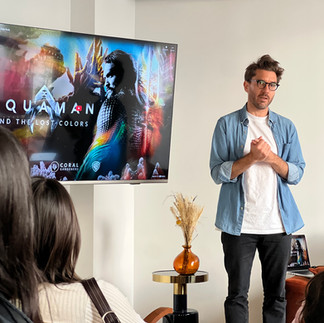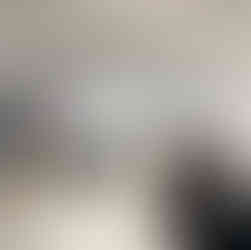Workspaces as Brand Statements
- mw41409
- Jun 22, 2025
- 2 min read
Company culture isn't just an internal buzzword — it’s a living, breathing extension of a brand. In the U.S., I’ve come to associate corporate culture with open-floor plans, branded snack stations, and mission statements featured on the walls. But experiencing French offices firsthand challenged and expanded that view. From physical office layouts to how employees interact, every space subtly signals what a company values and how it wants to be perceived. I wasn’t sure what to expect from corporate culture in France. What I found was that, much like in America, the workplace is a reflection of brand identity — but often with more intentionality in aesthetics, structure, and tone.
Let's use our visit to Chanel as an example. Their modern, sleek lobby and tranquil zen garden exuded a sense of quiet luxury and elegance. Everyone we encountered was incredibly polite and welcoming. Their session was clear and informative. Their reverence for the brand’s history and founder, Coco Chanel, aligns with the brand’s image of timeless elegance. Chanel’s culture reflects a brand deeply rooted in legacy — refined, timeless, and sophisticated.
In contrast, Havas felt like walking into a creative’s daydream. A bright, inviting lobby, bursts of color, and their current art installations featuring their employees, signaled a brand that values human expression. Employees were casual and friendly, and outdoor spaces like the mint garden and “Roots” area reinforced a grounded, people-first ethos. It was clear this was a place built for collaboration and big ideas.
Our visit to EDG reflected what could be considered as a more traditional corporate US office. It was bright, professional, and polished. Their meticulous presentation mirrored a brand that values structure, organization, and professionalism. Ores offered a refreshing take: approachable founders, a warm space filled with natural light, and even a creative diy pizza lunch. Feedback was genuine and constructive. This is a brand built on mutual respect, informality, and clarity — a place where being human is an asset, not a liability. Foll—ow was clean and modern with a casual, expressive vibe. Even though these agencies are part of the same parent company they are able to maintain their unique company culture thus reinforcing their brand.
Our visit to Dsm Firmenich personally stood out to me the most as a company I could envision myself working at. Their team exuded joy and openness, including their charismatic HR rep who made everyone feel genuinely welcomed. The culture perfectly mirrored their values-driven brand — one centered around human connection, career enthusiasm, and ultimately making the final customer happy.
Even LuxuryInights, which felt more like a tech startup, balanced its dual identity between tech and sales with an energetic, nimble environment.
In the end, company culture is the brand — not just what a business says, but how it acts, looks, and makes people feel. You can learn just as much from a garden in the lobby or a conversation in the hallway as you can from a mission statement.































Comments